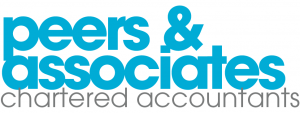Choosing your business structure will be one of the first major decisions that you need to take as part of starting a business. Peers & Associates specialise in start-up businesses and are available to discuss the pro’s and con’s of what types of structures would be best for your business.
The type of business entity you choose will depend on three primary factors: liability, taxation and record-keeping. We can identify the differences in the most common forms of business structures here:
SOLE PROPRIETOR
A sole proprietorship is the most common form of business organisation. It’s easy to form, as it does not require any specific legal organisation and offers complete managerial control to the owner.
The profit or loss of the business is combined with all other income of the individual for income tax purposes.
However, the owner is not considered to be a separate legal entity of the law and is regarded as having ownership of all of the business assets and liabilities.
PARTNERSHIP
A partnership involves two or more people who work together in one business and agree to share in the profits or losses. The rights, responsibilities and obligations of partners are normally drawn up in a partnership agreement.
A partnership is required to file an income tax return, however, a primary advantage is that the partnership does not bear the tax burden of profits or the benefit of losses. Profits or losses are distributed according to the partners share to each partner to report on their individual income tax returns.
Each partner has ownership of company assets but a primary disadvantage is liability-each partner is personally liable for the financial obligations of the business.
LIMITED COMPANY
A Limited Company is a legal entity that is created to conduct business. The company becomes an entity-separate from those who founded it and is responsible for its own debts.
The company will be taxed and can be held legally liable for its actions. The company must file an annual tax return with HMRC with a set of statutory accounts. Additionally the company is required to submit simplified accounts and an annual return which declares the status of the company annually to Companies House.
The owners of the company are typically protected from the liabilities of the business.
The disadvantage of forming a company is that it costs money to form it, Peers & Associates can form a limited company for you for the price of £50+VAT which is normally available to use within 24 hours. There is also extensive record-keeping that is required.
Forming a limited company allows for business continuity as shares can be sold or passed on.
LIMITED LIABILITY PARTNERSHIP
A limited liability partnership (LLP) is a hybrid partnership and limited company. It is gaining in popularity because it allows owners to take advantage of the benefits of both the corporation and partnership forms of business.
An LLP is a separate legal entity from its owners.
The advantages of this business format are that profits and losses can be passed through to owners without taxation of the business itself while owners are shielded from personal liability.
You should discuss your business entity structure with one of our advisors who will advise you more on the pro’s and con’s of the different structures. We can form the company ourselves which will be ready to use within 24 hours.
disclaimer: this information is provided for guidance purposes only and your individual situation should be discussed with our advisors.

